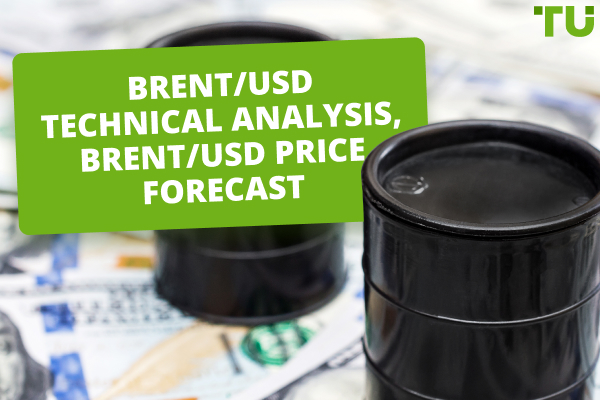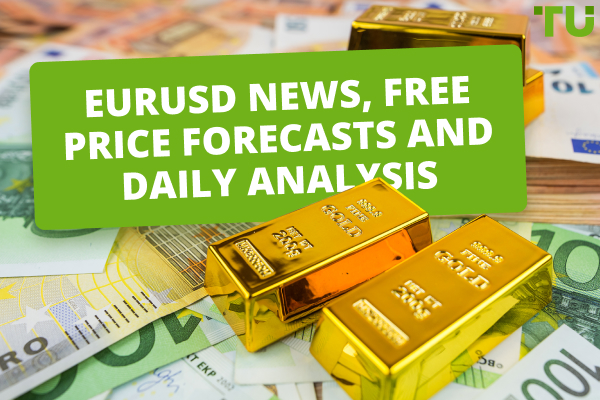Top 10 Forex brokers 2024 for trading indices
As any seasoned trader knows, diversifying one's portfolio is key to mitigating risk while capturing opportunity. For years, analysts and investors have turned to stock indices as a way to ease into wider markets without betting large sums on single firms. These barometers of business climate have historically proven as steady long-term plays.
Yet gaining exposure to baskets of publicly-traded giants leaves many wondering: how best to access this avenue of potential profit and hedge against disruption? The experts at Traders Union have steadfastly aimed to simplify the complex world of global finance. In the following article, they cut through jargon and close the knowledge gap on trading indices via Forex brokers in 2024.
Start trading indices now with RoboForex!-
How do you trade indices via Forex brokers?
Forex brokers allow you to trade indices through contracts for difference (CFDs). This involves speculating on the price movements of an index without owning the underlying assets.
-
Is trading indices riskier than trading Forex?
Generally, trading indices is seen as lower risk than trading Forex because indices comprise many stocks and provide exposure to entire markets. However, all trading involves risk of losses.
-
Do brokers offer indices from all global markets?
While large brokers cover major world indices like the S&P 500, FTSE 100, DAX and Nikkei 225, coverage of less common indices may be more limited.
-
How do ETFs compare to CFD trading?
ETFs track indices but require direct purchase of shares, whereas CFD trading provides leveraged exposure without owning the underlying assets.
What are indices?
Indices, also known as stock market indices or stock indices, are financial instruments that represent a basket of stocks or securities. They are used as a benchmark to measure the performance of a particular market or sector. Indices are typically composed of a group of stocks or securities that are selected based on certain criteria, such as market capitalization, industry sector, or geographic location.
The most well-known indices include the S&P 500 (which represents the performance of the top 500 companies listed on the NYSE and the Nasdaq) the Dow Jones Industrial Average (which tracks the performance of 30 large publicly traded companies,) and the FTSE 100 (which represents the performance of the top 100 companies listed on the London Stock Exchange.)
Indices are also categorized based on their market capitalization, where major indices such as the S&P 500 and the Dow Jones Industrial Average are considered large-cap indices. In contrast, indices such as the Russell 2000, which tracks the performance of small-cap companies, are considered small-cap indices. You can also be interested in information about trading hours for Dow Jones 30 index.
Indices are often used as a benchmark for investors and traders to measure their own performance against the overall market. They can also be used as a tool for diversification, as they provide exposure to a broad range of stocks or securities, reducing the risk of investing in a single stock.
Types of indices
In this section, TU experts have discussed several types of indices that investors and traders can invest in:
1. Stock indices: These are indices that track the performance of a particular market or sector by measuring the movement of a group of stocks. The most well-known stock indices include the S&P 500, the Dow Jones Industrial Average, and the FTSE 100.
2. Synthetic indices: Synthetic indices are a form of financial instrument that mimics the performance of a particular market or index using computer-generated, randomized numbers. They are managed by independent third-party companies. These indices may even have the advantage of being immune to natural disasters and are popular among retail traders due to their many benefits over other Forex currency pairs.
3. Commodity indices: These are indices that track the performance of a particular commodity market, such as the S&P GSCI, which tracks the performance of 24 commodities including energy, metals, and agriculture.
4. Bond Indices: These are indices that track the performance of a particular bond market, such as the Barclays Capital Aggregate Bond Index, which tracks the performance of the US investment-grade bond market.
5. Currency Indices: These are indices that track the performance of a particular currency market, such as the US Dollar Index (USDX), which measures the performance of the US dollar against a basket of other currencies.
6. Real Estate Indices: These are indices that track the performance of a particular real estate market, such as the S&P/Case-Shiller Home Price Indices, which tracks the performance of the US residential real estate market.
Each of these indices tracks the performance of a particular market or sector, providing investors and traders with a range of options for diversifying their portfolios and managing risk.
Can I trade indices in Forex?
Yes, it is possible to trade indices in the Forex market. However, it should be noted that Forex trading is not done with index futures themselves but with Contracts for Difference (CFDs). CFDs are financial derivatives that allow traders to speculate on the price movements of an underlying asset, such as an index, without actually owning the asset.
When trading indices in the Forex market, traders can open a long or short position on a particular index, depending on their market outlook. For example, if a trader believes that an index will rise in value, they can open a long position, while if they believe that an index will fall in value, they can open a short position.
It's worth noting that quotes for indices in the Forex market are identical to the ones in the stock market as the prices of the index futures are the same, but in the Forex market, traders do not have to pay for the actual index futures and instead, they use CFDs. Therefore, traders can take advantage of the same price movements, but with the added flexibility and lower capital requirements of CFD trading.
List of 10 best brokers 2024 for trading indices
| Minimum deposit | Indices to trade | Leverage for index trading | |
|---|---|---|---|
RoboForex |
$10-$100 |
9 |
Up to 1:20 |
Exness |
$1 |
8 |
1:200-1:400 |
IC Markets |
$200 |
25 |
1:30 to 1:200 |
XM |
$5 |
13+ |
1:20 to 1:100 |
Admiral Markets |
$100 |
24 |
up to 1:500 |
MultiBank |
$50-$5000 (depending on the account) |
26 |
up to 1:500 |
Libertex |
$10 |
20+ |
up to 1:500 |
Pepperstone |
$200 |
20+ |
1:20 to 1:200 |
AvaTrade |
$100 |
30+ |
1:20 |
eToro |
$10 - $200 |
13 |
1:20 to 1:100 |
RoboForex
RoboForex is a top Forex and CFD broker offering a wide choice of earning opportunities. Novice traders can copy the signals of professionals automatically. For professional traders, the broker offers a Forex bot constructor and individual trading in the Forex, stock and cryptocurrency markets.
Exness
Exness Trading Company has been working in the Forex market since 2008. The broker holds the leading position in Forex ratings. The company’s monthly trading turnover totals $325.8 billion USD. The broker currently has CFDs available for cryptocurrency, stocks, more than 120 currency pairs, energy and metals. Exness’s service provides favorable working conditions for traders: low commission, instant execution of orders and withdrawal of funds. There are several options for opening an account depending on the traders’ needs. A demo account is available - a training account that is useful for both beginner level traders and professional traders.
IC Markets
IC Markets Trading Company was founded in 2007 in Sydney, Australia. The broker is licensed under the Australian Financial Services License (AFSL) and the Australian Securities and Investment Commission (ASIC). The broker is also a member of the Australian Financial Complaint Authority (AFCA), the governing body that sets the industry standard for the resolution of disputes between consumers and financial service providers, and regularly undertakes audits.
XM
XM Broker was founded in 2009. Initially, the company covered a narrow niche of the trader market, specializing exclusively in intermediary services at the foreign exchange market. It has since experienced considerable success and growth. XM is reliable and safe. It has diversified and is now an international broker operating in almost 190 countries around the world. For over a decade XM Broker has attracted more than 5 million traders, offering unique technological solutions. The company is now being recognised as the Fastest Growing Broker, the Best Forex Service Provider and various other contributing achievements. The team at XM Broker is committed to continually working hard to improve the quality of the services provided every year as they are committed to continually providing the best service to their traders.
Admiral Markets
In 2001, Admiral Markets began operations, and they’ve gone on to become one of the best Forex brokers in the world. They have a head office in the UK.
MultiBank
Established in 2005, MultiBank Group has successfully stamped its authority in the world of trading. It has a valid impact in the foreign exchange industry with providing exemplary products, services, and trading platforms. With a paid-up capital of over $322 million, MultiBank Group is recognized as one of the largest only financial derivatives providers worldwide.
Libertex
Libertex is a trading and investment software from Indication Investments Ltd, which appeared in the market back in 1997. The broker was awarded the Best Trading Platform at the recent Forex Awards.
Pepperstone
Pepperstone (Pepperstone.com) was founded in 2010 in Melbourne, Australia, by professional traders who were not satisfied with the quality of services provided by most brokers. The founders decided to avoid many of the disadvantages of competitors, including high commissions, delayed execution of orders, etc. They also focused on improving the technical component. The company has set itself the goal of changing the “rules of the game” and setting the bar high for online trading. Today, the broker provides clients all over the world with some of the best technological solutions and favorable trading conditions.
AvaTrade
If you’re just starting out with Forex trading, then AvaTrade is one of the best brokers on the market. They offer a wide variety of educational resources that you can use to fast-track your Forex trading knowledge.
eToro
The eToro broker was founded in 2007. The company promotes itself as a social trading platform working with traders from over 140 countries. The broker has several divisions operating under different jurisdictions and licensed by different regulators
How to trade indices with Forex brokers
Trading indices with Forex brokers can be a great way to diversify your portfolio and take advantage of the price movements of different markets. So, the experts at TU have outlined the following tips to help you get started:
1. Choose a reputable Forex broker: Make sure to choose a reputable Forex broker that is regulated and offers a wide range of indices to trade.
2. Understand the market: Before you start trading, make sure to research the different indices you are interested in and understand how they are affected by various economic and political events.
3. Use technical analysis: Use technical analysis tools, such as charts and indicators, to help you identify potential trading opportunities and make more informed trading decisions.
4. Use a risk management strategy: It's essential to use a risk management strategy to limit your potential losses. For example, you can use stop-loss orders or take profit orders to help you manage your risk.
5. Keep an eye on the news: Stay up to date with the latest economic and political news, as these events can have a significant impact on the performance of different indices.
Keep a trading journal: Keeping a trading journal can help you learn from your past trades, identify patterns in your trading behavior, and make better decisions in the future.
Can I trade synthetic indices with Forex brokers?
When it comes to trading indices with Forex brokers, the most commonly offered product is stock indices. These indices track the performance of a certain group of stocks, such as the S&P 500 or the NASDAQ. However, synthetic indices are not as widely available through Forex brokers. Horewer, in TU articles you can find best Nas 100 Forex brokers as well as S&P 500 brokers and Volatility index (VIX) Forex Brokers.
One example of a synthetic index that is available through some Forex brokers is the VIX. The VIX, also known as the "Fear Index," is a measure of volatility in the stock market. It is created by the Chicago Board Options Exchange and is often used as a tool for hedging against market volatility.
In summary, while Forex brokers primarily offer stock indices for trading, some do offer synthetic indices as well. However, it's important to note that synthetic indices are not as widely available and may not be offered by all Forex brokers.
Team that worked on the article
Chinmay Soni is a financial analyst with more than 5 years of experience in working with stocks, Forex, derivatives, and other assets. As a founder of a boutique research firm and an active researcher, he covers various industries and fields, providing insights backed by statistical data. He is also an educator in the field of finance and technology.
As an author for Traders Union, he contributes his deep analytical insights on various topics, taking into account various aspects.
Dr. BJ Johnson is a PhD in English Language and an editor with over 15 years of experience. He earned his degree in English Language in the U.S and the UK. In 2020, Dr. Johnson joined the Traders Union team. Since then, he has created over 100 exclusive articles and edited over 300 articles of other authors.
The topics he covers include trading signals, cryptocurrencies, Forex brokers, stock brokers, expert advisors, binary options. He has also worked on the ratings of brokers and many other materials.
Dr. BJ Johnson’s motto: It always seems impossible until it’s done. You can do it.
Mirjan Hipolito is a journalist and news editor at Traders Union. She is an expert crypto writer with five years of experience in the financial markets. Her specialties are daily market news, price predictions, and Initial Coin Offerings (ICO). Mirjan is a cryptocurrency and stock trader. This deep understanding of the finance sector allows her to create informative and engaging content that helps readers easily navigate the complexities of the crypto world.




















